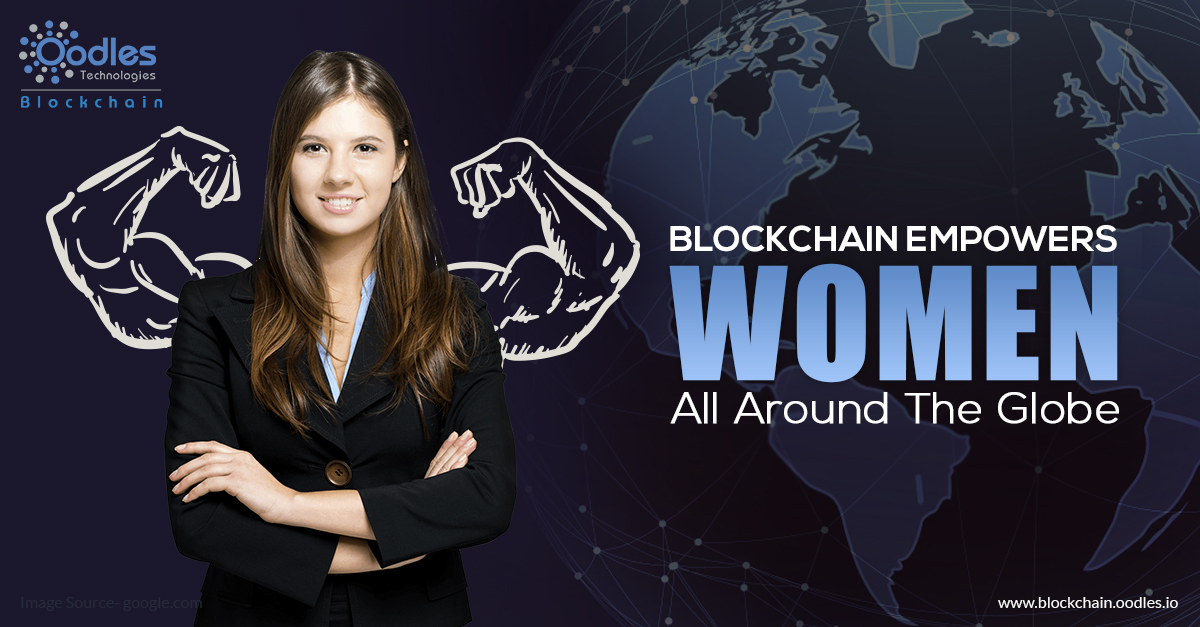-
Blockchain technology is widely known for its connection with Bitcoin (the famous cryptocurrency). However, its use cases are beyond cryptocurrencies that cover governance to remove fraud in finance. Briefly, Blockchain is an immutable ledger that uses strong cryptography for creating transactions and all the validated transactions are tamper-proof and permanently stored on the blockchain. Blockchain implementation addresses the major concern over online security. There are women residing in remote locations all over the world who are poor and don’t have IDs or bank accounts. Blockchain, however, has an immense potential to improve the lives of girls and women.
Here, we are shedding light on how it empowers women economically.
Blockchain for Women Empowerment
Personal Important documents
Research by World Bank reveals that the number of women holding an official ID, a birth certificate, a bank amount, or other necessary documentation is quite less as compared to men in developing nations. Blockchain is a digital ledger thus, women can have digital IDs.
With blockchain implementation, records are kept with high security as well as it reduces the cost of management of records. This will help them to apply for loans, jobs and permit them to open a bank account. So, women can contribute to the economic growth of a country.Contracts based on Blockchain Implementation
As reported by the Food and Agriculture Organization of the United Nations, women possess 20% less of a land of world’s land. And women are the most affected. They are weighed down unfairly by insecure land rights. The problem here is, in most countries, women's land rights are handicapped by the patriarchal dominance that rules various communities, and disparities between the constitutions and customary laws. Contracts based on blockchain improve the ownership power of women for land. Their property ownership rights are kept safe with blockchain as it is impossible to alter any document stored on a blockchain. Thus, it helps to knock out any kind of counterfeit or inaccuracy in it. So this creates an accurate and reliable system as far as women land’s rights are concerned. Now, no person either a government appointee or any man can contradict and challenge the land owned by women. Because all the contracts are documented on the blockchain.
Payments Via Blockchain
Blockchain has emerged to be the most secure technology for financial transactions. Nearly half of the total women in the world, do not even have a bank account. Blockchain is helpful in this situation in a way that it provides a payment system where transactions can be carried out on blockchain free of cost. It is only possible with its peer-to-peer transaction network that needs no intermediary, central bank, or third party. Moreover, if one wants to open a cryptocurrency wallet then one needs to pay nothing for it. In this case, it eliminates the barriers for women to start financially. As compared to men, women are less likely to bear the expense of maintenance fees or minimum balance requirements in respect of their overrepresentation in part-time and informal labor or productive activities that are not taxed or registered by the government.
Where the infrastructure is not strong for women, blockchain can help women transformation with economic growth opportunities.

Our Offices
INDIA
Emaar Digital Greens, Sector 61,
Gurugram, Haryana
122011.
Welldone Tech Park,
Sector 48, Sohna road,
Gurugram, Haryana
122018.














